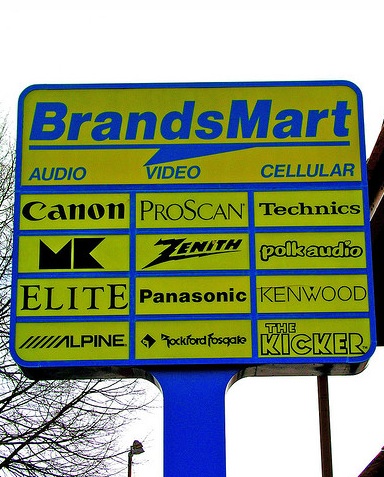
Here’s what I’m talking about…
The Crown Center fountains controversy is a perfect example of what’s wrong with much of what passes for journalism today. Media organizations sending random, often rookie reporters to cover a story in which they have no background or history. They’re armed only with the intention of answering the very basic questions of who, what, where, when and – if we’re lucky – why.
The latter often being the most telling, but least told part of the news story.
Instead what viewers and readers get more often than not are a handful of inconsequential man-or-woman on the street takes and maybe a thin veneer of reasons and or answers with little to no followup or probing questions.
In short, news lite.
Now read automotive giant Bob Lutz‘ take on the practice of journalism today from his new book Car Guys:
"Then there’s the American media," the former chairman of General Motors begins. "With relatively rare exception, these men and women are well left of center, with over 70 percent of the profession cheerfully declaring themselves ‘liberal’ in surveys. Products of a higher education system that is itself riddled with professors who are anything but conservative, most journalists receive a massive dose of anti-free market, anti-big business programming in college…"
That of course, only speaks to the self-evident politics of reporting (which most print journalists naively but strongly deny).
Now here’s the money quote:
"A compounding factor is that, unlike in Europe, where an economics correspondent typically has a degree in economics, a journalism student in the United States merely learns journalism: how to write, how to interview, how to develope sources, journalistic ethics…..all good and legitimate skills when superimposed on some specific background in the area being covered. But that’s never the case here. And so we have people reasonably adept at writing and interviewing not only reporting but pontificating on corporate or financial matters of which they have only the most superficial understanding. What can one expect when reporters start on the society beat, move up to restaurant reviews and follow by a stint in crime reporting before suddenly being assigned to business reporting? How can sensible, accurate writing about such complex subjects possibly result?"
When I was a securities and commodities broker reporters from the Kansas City Business Journal and Star would conduct interviews with our research analysts and brokers who would laugh and ridicule their naivete after they departed.
They could tell them almost anything and they’d believe it!
 Want examples?
Want examples?
When former Star food critic John Martellaro moved to Kansas City several years back he sought a position as news reporter but since there were no openings, he took the job as food critic in features. Martellaro later switched to the news side before having some reporting problems and departing the newspaper for the world of public relations.
Was Martellaro qualified to play the role of foodie? Well, he obviously knew how to eat and to write, so as far as the Star was concerned, the answer was yes.
He was later replaced by a copy editor – a dude responsible to cleaning up typos, spelling errors and the like in news reporters and columnist’s copy. A dude who then did the music and restaurant reviews for a time until he got busted for writing a scathing review of a restaurant after getting his food to go and transporting it to his home in Liberty to consume.
The restaurateur "made" the Star critic and called the FYI editor to complain after taking it up the you-know-what on the review. To be fair of course, the food should have been eaten at the restaurant at the time it was served. The FYI editor agreed and that journalist is now limited to reviewing concerts only.
After that his photographer wife was appointed to the food critic post at the Star, whereupon she violated every journalistic rule in the book by letting some of the restaurants know who she was and that their food was being reviewed.
I personally witnessed a series of chefs at Lydia’s downtown individually deliver and explain each course being reviewed. She got a wrist slap for that but continued the practice, albeit on a more dialed back basis.
Obviously, a restaurant critic should go in anonymously in order to sample the dining experience exactly as any local diner might. And not be custom-presented with courses specifically prepared with the idea that it was to be reviewed.
Another aspect of reporting that Lutz finds distasteful:
"Add to all of this the intense compeititive pressure for scoops," he writes. "With speed of the essence, quality and accuracy are relegated to the back of the bus."
I will say here that the Star is more often than not careful to a fault in this regard. Unless of course it’s somebody on the newspaper’s enemies list such as former KC mayor Mark Funkhouser.
Lutz bottom line:
"I naively grew up believing that the media existed to provide new facts and information and, in the case of controversial subjects, to confine the publication’s own opinions and bias to the editorial page."
Mainstream reporters and journalists will argue until they are blue in the face that their you-know-what don’t stink, but there’s absolutely no doubt that reporters – with rare exception – have views that tend to find their way into news stories.
Call it the human condition.
 And don’t think news editors don’t have a heavy hand in this game either.
And don’t think news editors don’t have a heavy hand in this game either.
When Nebraska Furniture Mart first hit town a number of established local players in the audio/video and furniture games felt the company was practicing predatory pricing to eliminate the local competition.
Anybody remember a KC institution called BrandsMart?
I aired many of those grievances in my column in the FYI section. That is until the company head came to town and met with Star editor Mark Zieman. Needless to say, Nebraska Furniture Mart was a HUGE advertiser in the newspaper and remains one of the largest today.
Was I invited to sit in on that meeting? Of course not.
However, from that day forward I was ordered not to write anything more about the company.
Funny game, journalism…










great article Hearn
You are absolutely right. Not only don’t most journalists today not do any real research or investigation, they go into stories with preconceived veiwpoints and try to make the story fit their opinions by only reporting one side of the story. I also love these journalists on TV that are so lazy, they interview another reporter for their story! What is that? Is that supposed to add credibility? There is now a blurry line between news reports and editorials. Even when I took journalism in high school, we would get check marks if the teacher found editorializing in a report. Much of what I read in papers or see on TV would have been flunked by my teacher in high school! You used to be able to watch a reporter on TV or read a paper without having any idea what the reporters personal opinion was. They left it up to you to form your own opinion.
Fourth Estate and Long
Hence comes the demise of the fourth estate and their Kool-Aid drinking supplicants. Matthew 7:7, Seek and Ye Shall Find. Those concerned enough with the truth and facts know who the real reliable sources are. It ain’t the print media, Fox News or CNN. Knowledge is POWER. Those who don’t flex the cranial muscles are destined to be tossed upon the scrap heap of life like a used condom. Einstein said, “genius is the ability to distinguish the important from the unimportant”. Too many people lack the skills and intellect to make that differentiation in everyday life, hence the term ignorance is bliss and the Kardashian’s. It’s all one big echo chamber which is why I choose to go through life with my Bose noise cancelling headphones turned down to 11. In the silence the Lord speaks to me and guides my way. Beware the American Idols and the false ones too.
It’s all about the ratings anymore. Long as the story gets peoples attention and they tune in or read for more it’s all that matters.
Good example is Glazer he can’t write very well, to many times his facts are wrong but he gets to stay around here. The simple reason is he draws readers so in a way Hearne you practice the same style of journalism as all the rest
@super dave
In all fairness to Glazer, I don’t think he has ever claimed to be an unbiased journalist or even a journalist. I have no problem with an editorial or entertainment piece as long as it is not trying to disguise itself as unbiased reporting of news.
Really excellent read in my opinion Hearne.
Just for the record, when Nebraska first came to town, armed with a galaxy of cash, they did indeed price their products at cost. I was privy to net net pricing on several lines and they were below what Brandsmart could buy it for. The prices were so low, they were driving distributors out of business.
After the dust cleared and most of the local retailers had shuffled the mortal fuckin coil, I checked to see if the prices, in general, had changed. I will give one example that I believe most of us can relate to, although this example was endemic.
At that time, about 4 (?) years ago (I am in my dotage, so I could be off a year or so.) there was a 60″ LG plasma for sale at Nebraska for $3,100.00. The net on that tv was around $1800.00 and that does not include dating, coop or any DFI.
I bring this up, NOT because I think that profit is a bad thing, but to illustrate the dramatic change in profit for Nebraska once its competitors were gone.
In Kansas City, up to the point of Nebraska’s entry into the marketplace, audio mark up was 30 to 45 percent. To get your mark up, divide the selling price into the cost and subtract. Video had always been at best 20 points and usually was 15 points with leaders going out the door at 10 points. Now Nebraska cuts a FAT hog in all things Audio Video by way of fewer stores and competition. In addition, their ability to install is questionable on a good day.
At Brandsmart the overall profit for all things sold, usually was around 30 Points.
Once again, this is not a pejoritive commentary on Nebraska, it just is what it is.
In my opinion, if you go all the way to north bumfuck to pay 30 to 45 points for Audio Video and Jesus only knows what for furniture, you my friend have been fleeced.
The only place left in the area, that still does busines like Brandsmart and delivers quality goods and services from a knowledgeable staff in Kiefs.
It probably isn’t much further than St. Joe and you will be far better served in my opinion.
Once again, really nice article Hearne.
BTW Hearne,
Bob Lutz kills it in “The Revenge of the Electric Car”.
I am a big fan.
chuck…are you
“be the baseball” chuck?
What Survey?
Bob, global warming is a crock of shit, Lutz says a survey shows 70% say they are liberal. What survey? Where was it printed? And when?
Political leanings aside,
the primary reason for the decline in print journalism lies at the feet of the vulture capitalists and other “business peoples” that determined squeezing a shitload of profit was more important than printing all the news that fits. End of story.
Great story, Hearne….
it really was.
hey baldy fat guy
if you would spend more time selling boxes you might not have to run a garage sale to pay bills!
Great Article
Well written Hearne.